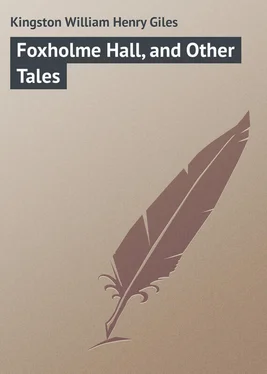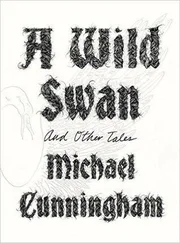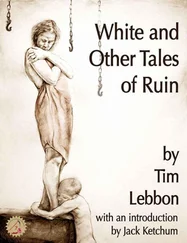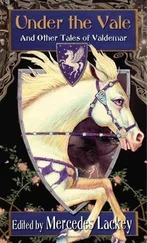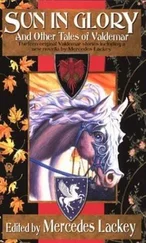William Kingston - Foxholme Hall, and Other Tales
Здесь есть возможность читать онлайн «William Kingston - Foxholme Hall, and Other Tales» — ознакомительный отрывок электронной книги совершенно бесплатно, а после прочтения отрывка купить полную версию. В некоторых случаях можно слушать аудио, скачать через торрент в формате fb2 и присутствует краткое содержание. Жанр: foreign_prose, foreign_children, на английском языке. Описание произведения, (предисловие) а так же отзывы посетителей доступны на портале библиотеки ЛибКат.
- Название:Foxholme Hall, and Other Tales
- Автор:
- Жанр:
- Год:неизвестен
- ISBN:нет данных
- Рейтинг книги:3 / 5. Голосов: 1
-
Избранное:Добавить в избранное
- Отзывы:
-
Ваша оценка:
- 60
- 1
- 2
- 3
- 4
- 5
Foxholme Hall, and Other Tales: краткое содержание, описание и аннотация
Предлагаем к чтению аннотацию, описание, краткое содержание или предисловие (зависит от того, что написал сам автор книги «Foxholme Hall, and Other Tales»). Если вы не нашли необходимую информацию о книге — напишите в комментариях, мы постараемся отыскать её.
Foxholme Hall, and Other Tales — читать онлайн ознакомительный отрывок
Ниже представлен текст книги, разбитый по страницам. Система сохранения места последней прочитанной страницы, позволяет с удобством читать онлайн бесплатно книгу «Foxholme Hall, and Other Tales», без необходимости каждый раз заново искать на чём Вы остановились. Поставьте закладку, и сможете в любой момент перейти на страницу, на которой закончили чтение.
Интервал:
Закладка:
“I tell thee that thou art but a traitrous cheat,
So fight away, or I will make thee into mince-meat.”
They were not in the least particular as to who should fight one with the other. Julius Caesar and the Black Prince had a desperate combat, and so had Mark Antony and King Arthur, the two British heroes coming off victorious, and leaving their opponents dead on the field. The most terrific combat was that between the Duke of Wellington and Napoleon Bonaparte. For folly five minutes they walked about abusing each other in the most unmeasured versification, I was going to say language, flourishing their swords, and stamping their feet. They put me much in mind of two turkey-cocks preparing for a fight. It might be remarked also that in this, as in the previous instances, the modesty of the heroes did not stand in their way, when singing their own praises:
“I am that hero, great and good,
Whom France and Frenchmen long withstood.
I beat them all well out of Spain
And I will beat them all again.
And Bony, as you know ’tis true,
I thrashed thee well at Waterloo
So if you have not had enough,
All will allow you’re very tough;
Come on, I say, I do not mind thee,
For as I was, you still will find me.”
Thus spoke the great Duke of Wellington. Bony answered in a similar, only in a somewhat more abusive strain, when, throwing the sheaths of their swords on the floor, they commenced a furious and deadly combat. At length Napoleon was slain; but, somewhat outraging our school notions of history, Julius Caesar rushed forward to avenge his death. He, however, got more than he expected, and was soon laid alongside Bony. One hero after another rushed forward, but all were finally slain, and the Iron Duke remained master of the field. He, however, overcome by fatigue and numberless wounds, sunk down at last, and died also. Now a new character appeared at the door, in the person of a doctor, with a long nose and a stick, which he held constantly to it. Having explained who he was and what he would do, or rather what very few things he couldn’t do, he produced a huge snuff-box from his pocket, and first approached the slain hero of Waterloo, saying, —
“Take some of my sniff-snuff,
Up thy riff-ruff,
And rise up, brave Duke of Wellington.”
Up jumped the Duke with wonderful agility, and began dancing about right merrily. The same words produced a similar effect on all the late combatants, and, the doctor helping them up, they were all soon dancing and jumping about as merrily as the Duke. This amusement was of short duration, and a moral was taught us as to the brevity of all worldly happiness, for suddenly, the door bursting open, in rushed a huge figure like a moving holly-bush, but it had a head and arms and legs. It was of an allegorical character, intended to represent Time; but, instead of a scythe, the arms held a broom, by lustily plying which, he speedily swept all the heroes and the great doctor off the stage. These mummers, as they are called in that part of the country, always used to excite my warmest admiration. We used to call them jiggery-mummers at Foxholme, because they danced or jigged in the peculiar fashion I have described. They are a remnant of the morris-dancers of olden days. They were generally called on to repeat this play in the servants’ hall, and often in my younger days did I steal down to witness the exhibition. This closed the public amusements of the evening. The evening of that holy day at Foxholme was always spent in a quiet, though in a cheerful way. Sir Hugh would have preferred having the mummers perform on another day, but the custom was so ancient, and the people were so opposed to the notion of a change, that he permitted it to exist till he could induce them to choose of their own accord another day. We spent a very pleasant, happy evening, and we knew that for the next day Master Peter had prepared all sorts of games for our amusement. Little Hugh had been with his mother watching the mummers, and highly amused, giving way to shouts of hearty laughter. Then he ran off to Julia, while Lady Worsley was attending to some of her guests; next he attached himself for a time to Master Peter, and from him made his escape into the servants’ hall to witness the mummers’ second representation. I remember that Jack and I, with several other boys, went out before returning into the drawing-room to smell the air, and to discover if there was a frost. How pure and fresh and keen it was. The gravel on the walk felt crisp as we trod on it. The stars in countless numbers shone with an extraordinary brilliancy from the dark cloudless sky. There was no doubt about a frost, and a pretty sharp one too, and our hopes rose of getting sliding, skating, and snowballing to our hearts’ content. While we were standing with our faces turned towards the park, I remember that Jack, who had a sharp pair of eyes, said that he saw a deer running across it. We declared that it must have been fancy, as it was difficult to make out an object through the darkness, except it was against the sky, at a distance even of twenty yards. As we had run out without our hats, we very quickly returned into the warm house.
Story 1-Chapter III
We were sitting round Master Peter, listening to an account he was giving us of a trip he once made, when a midshipman, through Palestine, when the drawing-room door opened, and Mrs Moss, little Hugh’s nurse, appeared, to beg that he might be sent up to bed. There was nothing unusual for Nurse Moss coming for Master Hugh, who always objected to be sent off to bed, but I saw Lady Worsley turn suddenly pale.
“Why, nurse, I thought that he had gone to you nearly half an hour ago,” she exclaimed. “He has not come into the drawing-room since the mummers were here. Oh! where can he be?”
“Probably coiled up in an arm-chair in the other drawing-room, or in the study,” said Sir Hugh, calmly, seeing our aunt’s agitation; but I thought that even his eye looked anxious. The next moment everybody was hunting about in every possible direction. The child was not in the north drawing-room, nor in the ante-room, nor in the study. That was soon made clear. Where was he, though? Some of the party went down-stairs, to help the servants look in that part of the house; others searched through the bedrooms. Every cupboard, every chest and box, was opened. We looked under every arm-chair, and bed, and sofa in the house. We boys were, I must say, the most active in our movements, and it was a mercy that we did not set the house on fire. We looked into every attic – those inhabited and those full of lumber. In the latter I should not have been quite happy alone. They were full of so many strange articles of furniture and ornaments, or what were once considered such, and pictures in corners, with eyes, as the light of our candles fell on them, staring out so curiously, that I could not help fancying that some person had got in there to frighten us. Frequently the cry was echoed through the house – “Is he found? is he found?” with a reply in the negative. Sir Hugh headed one party, Lady Worsley another, Cousin Peter a third, and Julia a fourth. After a most systematic search not a trace of the lost child could be discovered. Matters had now become very painful. Our aunt was almost overpowered with her feelings of anxiety, and Julia was nearly as much agitated. Sir Hugh next summoned the servants, as well as all the family, into the hall, and questioned every one to discover by whom his son had last been seen. Several of the servants acknowledged to have observed him enter the servants’ hall, but no one could say positively that he had gone out again. No further information could be elicited from any one. The matter had become truly alarming and mysterious. While the female part of the household continued the search within the house, we, with all the lanterns which could be mustered, and extemporised torches, began a search outside. The ringers and the singers and the mummers had taken their departure. Messengers were, therefore, sent after them to the village, to call them back, that they might be questioned. The child would scarcely have left the house of his own accord, and yet, if not, who would have ventured to carry him away? What temptation, indeed, would there have been for any one to do so? That was the question. I had never seen Cousin Peter in such a state of agitation as he now was, though he tried to be calm and composed. Round and round the house we went, and looked under every tree and bush, and into every dark corner. At last the mummers, and the singers, and ringers, began to come up from the village, accompanied by the greater part of the population of the place, all anxious to know what had happened. A variety of rumours were afloat. Everybody sympathised with our uncle. As soon as they were assembled he addressed them, and then begged those who had anything to say to step forward that he might hear them one by one. Not a word of information, however, was elicited of any value. They had seen little Hugh in the servants’ hall, and on one occasion he had darted forward and run in and out among the mummers; but they thought that he had gone back again among the servants. Hopes had been entertained that he, for a freak, had run off with the mummers or singers; but they all positively asserted that he was not with them when they left the Hall. Inquiries were made whether any suspicious characters had been seen in the neighbourhood. The people talked for some time among themselves. Then John Hodson, the village blacksmith, stepped forward, and said that two days before a stranger had spoken to him as he was working in his smithy, and asked a number of questions about the place; but he didn’t mind them at the time, and thought that it was only for curiosity’s sake. The cobbler, Ebenezer Patch, also recollected that a stranger had spoken to him, but he didn’t heed much at the time what questions were asked or what were answered.
Читать дальшеИнтервал:
Закладка:
Похожие книги на «Foxholme Hall, and Other Tales»
Представляем Вашему вниманию похожие книги на «Foxholme Hall, and Other Tales» списком для выбора. Мы отобрали схожую по названию и смыслу литературу в надежде предоставить читателям больше вариантов отыскать новые, интересные, ещё непрочитанные произведения.
Обсуждение, отзывы о книге «Foxholme Hall, and Other Tales» и просто собственные мнения читателей. Оставьте ваши комментарии, напишите, что Вы думаете о произведении, его смысле или главных героях. Укажите что конкретно понравилось, а что нет, и почему Вы так считаете.
